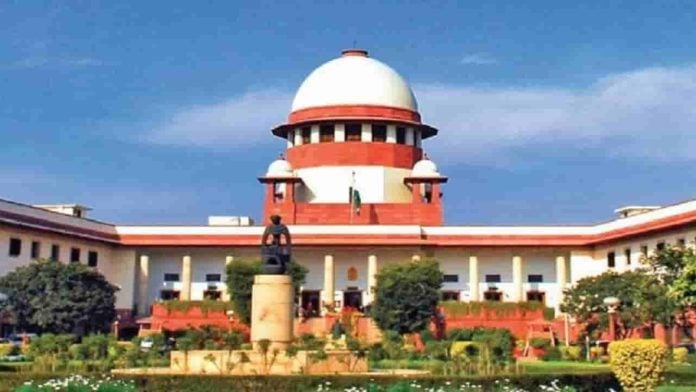The Supreme Court on Friday upheld Section 10(a)(i) of the Unlawful Activities (Prevention) Act, 1967, which held that mere membership of a banned association was sufficient to constitute an offence under the UAPA or the Terrorism and Disruptive Activities (Prevention) Act, unless it was accompanied by some overt violent incident.
The Bench of Justice M.R. Shah, Justice C.T. Ravikumar and Justice Sanjay Karol overruled the verdicts passed in 2011 in Arup Bhuyan vs State of Assam, Indra Das vs State of Assam and State of Kerala vs Raneef.
The 2011 verdict in Arup Bhuyan was delivered by a two-Judge Bench comprising Justice Markandeya Katju and Justice Gyan Sudha Mishra, while deciding a bail application under TADA filed by a person accused of being a member of armed separatist organisation United Liberation Front of Asom (ULFA).
The Apex Court had then ruled that mere membership of a banned organisation would not make a person a criminal unless he resorted to violence or incited people to violence or created public disorder by violence or incitement to violence.
While deciding a bail application under the UAPA in the case of State of Kerala vs Raneef (2011), the same bench had taken the same view. A similar verdict was passed in the Indra Das case by the same Bench.
The Bench of Justice Dipak Misra and Justice A.M. Sapre had referred the matter to a larger bench in 2014, after the Union Government filed an application seeking reference on the ground that the interpretation was given to the Central legislation without hearing the Union of India.
A three-Judge Bench had commenced hearing the matter on February 8, 2023 and reserved the judgment the next day, after hearing Solicitor General Tushar Mehta and Senior Advocate Sanjay Parikh (for an intervenor NGO).
The Apex Court today ruled that the 2011 verdicts were passed in bail applications, where the constitutionality of the provisions were not called in question.
It further found fault with the 2011 judgments for reading down the provisions without hearing the Central government.
The Apex Court observed that the two-Judge Bench made a mistake by relying on the US Supreme Court judgments, as the freedom of speech and freedom of association as per the Indian Constitution was subject to reasonable restrictions.
Reading out the operative part of the verdict, Justice Shah said that Section 10(a)(i) was absolutely in consonance with 19(1)(a) and 19(2) of the Constitution and thus, in consonance with the objectives of UAPA.
SG Mehta termed the Apex Court verdict as historic, which would protect the sovereignty of the country.


